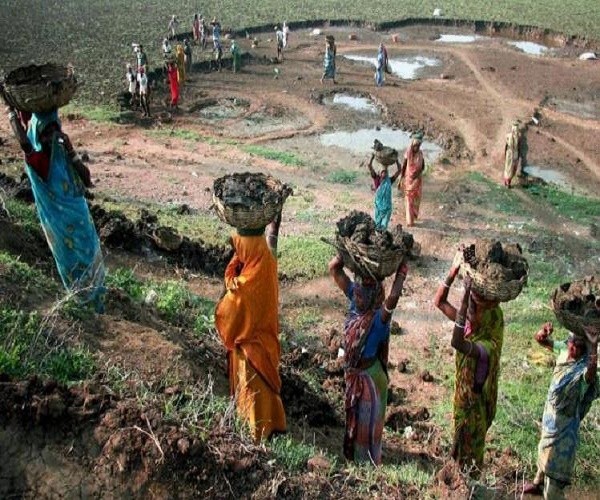Tribals employed under the Mahatma Gandhi National Rural Employment Guarantee Act (MGNREGA) in Telangana have come up with a list of demands that they would like political parties to include in their election manifestos in the run-up to Assembly polls on December 7.
The people who helped the tribals formulate the demands are reaching out to political parties with the hope that these demands would be incorporated as part of poll promises of the parties. Thirty-two tribal groups and four PVTGs (Particularly Vulnerable Tribal Groups) form 9.34% (an estimated 9 lakh) of the total tribal population in Telangana, according to the 2011 Census.
In 2013, prior to the state’s bifurcation, Andhra Pradesh came up a with a Government Order that empowered Integrated Tribal Development Agencies (ITDAs) to look after NREGA implementation in the state. The GO, however, was never implemented. The administration of work under NREGA for tribal areas in Telangana is still under the district administration.
“The first demand is to implement this GO. Government records show that over 8 lakh members from the ST community found employment under the National Rural Employment Guarantee Act, 2005 (NREGA) scheme in 2017-18. This is an indicator for how popular the scheme is among the community,” said Chakradhar Buddha, program manager, with Libtech India, a group of team of engineers, social workers and social scientists working with tribals in Telangana.
“For effective implementation of the scheme, the ITDA is better equipped to implement the scheme as they understand the realities of tribals better than the district officials, and also due to logistical reasons. One of the demands is that more field assistants must be hired for tribal regions. The scheme’s implementation suffers as they have to cover more area as the habitations are spread out,” adds Chakradhar.
Other demands being made in the charter include the rights of tribal to choose their own payment agency due to the lack of access to basic banking facilities and giving the Gutti Koyas tribal community access to NREGA job cards.
Various civil society groups and political outfits like the Bahujan Samaj Front and Tudum Debba came together to write this charter of demands for tribal MGNREGA workers. Their demands also call for more rights for non-tribal NREGA workers. The organisations have been reaching out to all political parties contesting elections in the state, but the responses have been lukewarm, they say.
In the charter, the organisations demand that work days for tribal areas in the state be increased from 100 to 150 days. They claim that work days in the state’s tribal areas barely cross 40 work days.
At Eturunagaram, a tribal village in Jayashankar district, official records show the number of workdays given to be just 37 days in the last one year — lower than the state average of 45 days.
“This is the situation across various tribal belts. Their work days are lower than the state average. One of the demands is to increase the work days for tribal areas,” says Chakradhar, who compiled the charter. “In the case of tribal areas, opportunities to earn a decent living are very limited. Political parties must ensure that the workdays for tribal areas be increased to 150 days,” he adds.
Even when it comes to deciding what work is apt for the tribal areas, the tribals don’t have a say in the decision-making. ”The decision is taken at the state level and not at the panchayat level. This needs to change,” Chakradhar says, citing the example of Eturunagaram village.
“The villagers wanted a minor irrigation tank project built under the NREGA, but the work was not taken up. The decision had to come from the officials at the top,” he says. #KhabarLive







